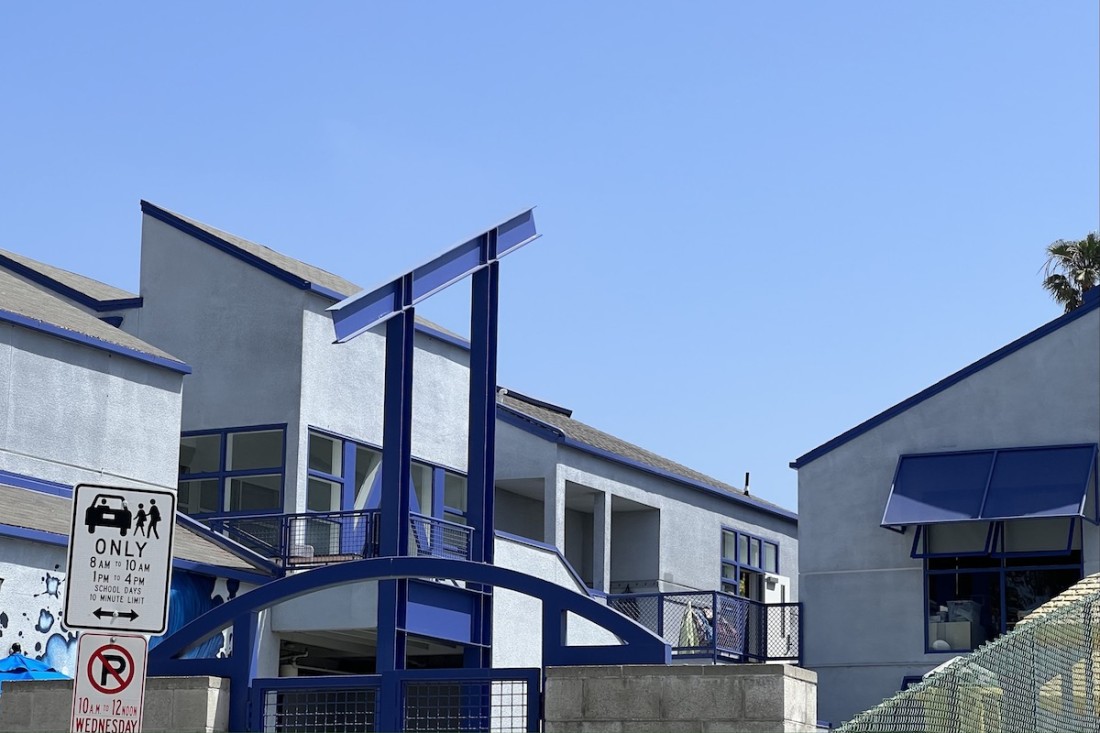VENICE – On a cool Thursday, Nov. 5 evening at the Westminster Elementary School auditorium in Venice, nearly 100 people gathered for a town hall discussion on the LA District Attorney’s proposed ordinance on medical marijuana.
When Mike Newhouse, the moderator of the discussion, asked how many were against the legalization of marijuana, not one hand was raised compared to an overwhelming majority of those raised when asked the opposite.
“What you’re looking for and hoping for is a lot different that what’s on the book right now,” said Jane Usher, senior assistant city attorney for LA, who also pointed out that the purpose of the discussion was not debating whether marijuana should be legal or not, but to debate whether there should be limits on dispensaries, their locations and their operating conditions.
“It’s our opinion that state law allows for reimbursement of hard costs,” explained Usher to the gathered Venetians regarding her office’s proposed ordinance. She continued with an analogy of a collective nursery, where a person watches their own child and those of the other parents involved one day, but another parent watches them on a different day. In this scenario, some money would exchange hands to recoup costs and pay bills, but never for profit, Usher said.
Take Usher’s analogy, substitute the children for cultivating and dispensing of medical marijuana as a collective and what is left is the model City Attorney Carmen Trutanich has concluded is the only legal use for marijuana in Los Angeles based on his interpretation of the 1996 Compassionate Use Act and the 2003 Collective Cultivation Law. The City Attorney’s office has submitted its proposed ordinance to clarify the city’s stance of medical marijuana to the LA City Council.
Most importantly, this interpretation leaves no room for the sale of marijuana. This could mean closing down many or all dispensaries, regardless of whether or not they are licensed.
The town hall discussion was a fact-finding for the Venice Neighborhood Council to aggregate the opinions of its citizens into a cohesive summary, which would be drafted and submitted to Bill Rosenthal’s office and the City Council.
“What I was hoping to see was a little more of – folks from the side that thought that there are too many dispensaries, that think it’s gotten too far and that it needs to be rolled back a little bit,” said Newhouse, who is also president of the Venice Neighborhood Council. “Not that I necessarily agree with that, but I wanted to get more of a back and forth dialogue – Unfortunately, not a lot of folks from the other side showed up to get more of a debate type discussion going on.”
Many of those who spoke failed to propose constructive alternatives to the matter at hand and instead spouted opinions on macro issues such as whether marijuana should be legal, often aggressively and confrontationally to Usher.
“We need concrete discussion – Let’s keep the insinuations and personal attacks out of this,” interjected Newhouse at one point. “Anyone feeling attacked or trying to defend something, that’s not what we’re here for.”
Despite the occasional lack of focus, there were many in the crowd with constructive, well informed and pointed alternatives to the city attorney’s proposals. Regarding the number of dispensaries allowed, the audience consensus was to either base the number on how many prescribed patients live in the area or to simply let the market decide. There was also a general agreement that keeping a distance from schools was reasonable.
One especially popular idea was that of Linda Lucks, vice president of the Venice Neighborhood Council, who said she was involved in marijuana decriminalization, but felt offended when a dispensary proprietor accosted her as she was walking down the boardwalk with her grandchildren, soliciting her to enter the establishment. Lucks proposed modeling the medical marijuana regulations on those governing pornographic and adult bookstores.
Arturo Piña, southern district director for Rosendahl, said that the councilman is in favor of the patient’s right to access medical marijuana, but would like to tax dispensaries, to regulate them and to be sensitive to the planning aspects such as locations.
Even though the time limit for speakers was shorted from two minutes to one, there were still many in the audience wanting to speak by the end of the two-hour town hall. Piña and Usher were both engulfed afterward by citizens eager to say more.
“I think once the night got further along, people got the idea that we are looking for something a little more concrete. People started coming up with actual suggestions on how to make the ordinance better, how to make this work better,” said Newhouse. “I think it went very well. We got a lot of good input.”
On Nov. 11, the Venice Neighborhood Council Board announced it will hold a hearing on a resolution against the ordinance. The Resolution describes the oridance as “overly-burdensome”, too restrictive, failing to meet the needs of patients for accessibility and quality.












